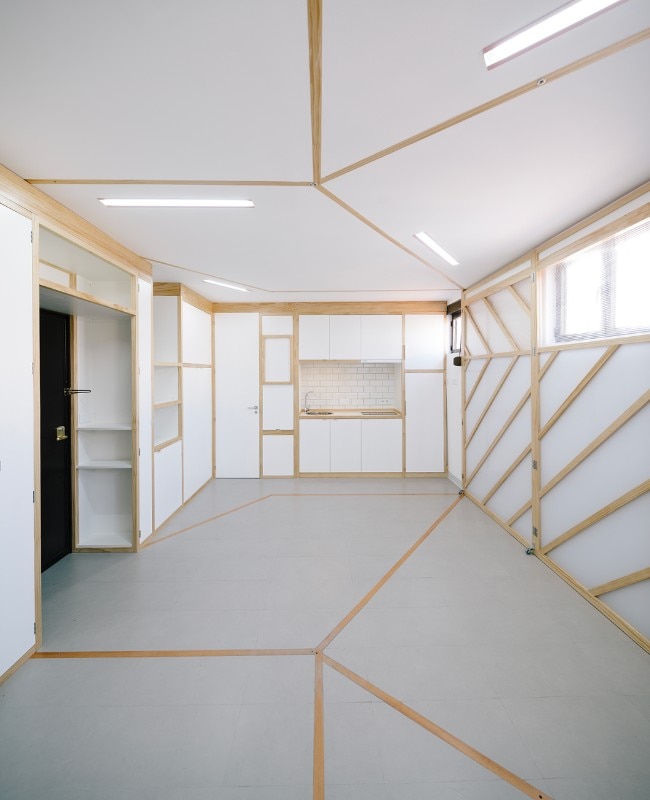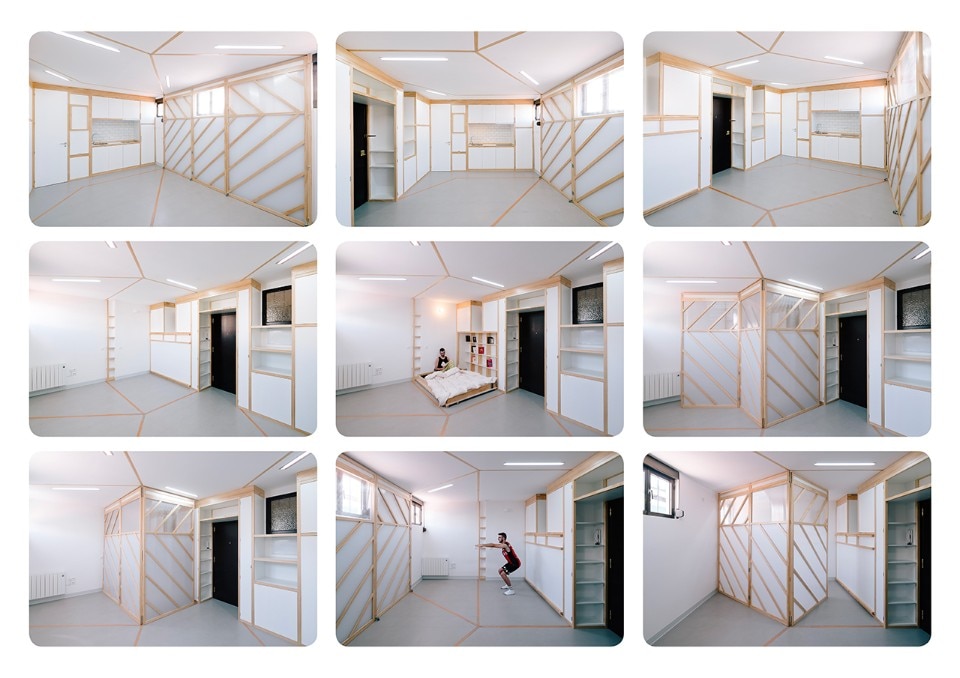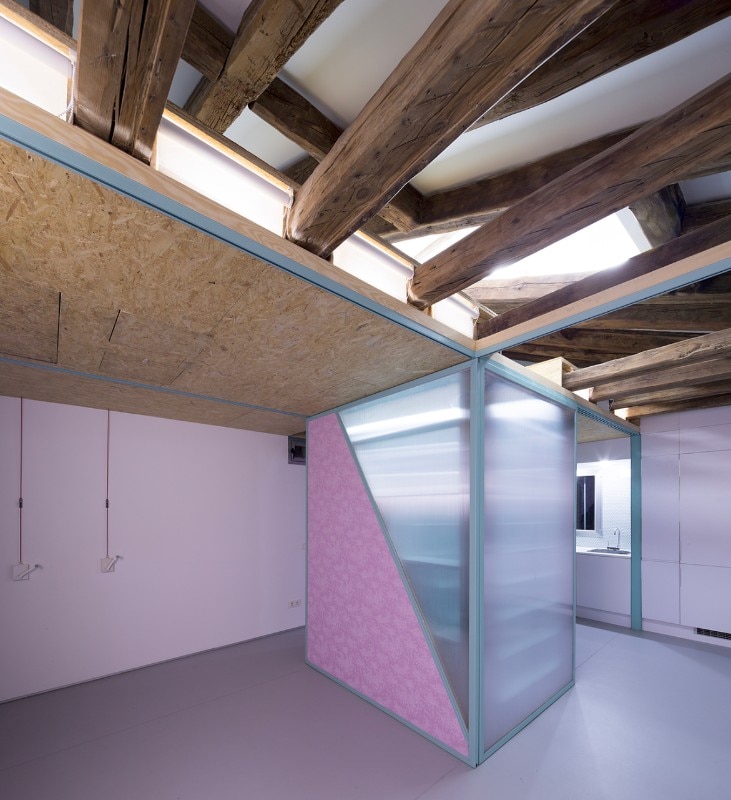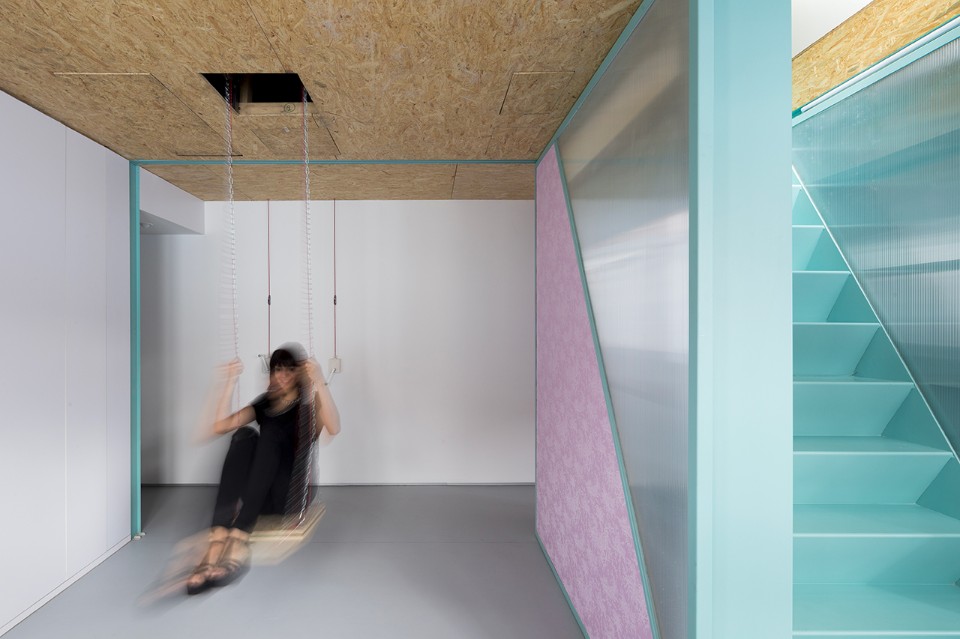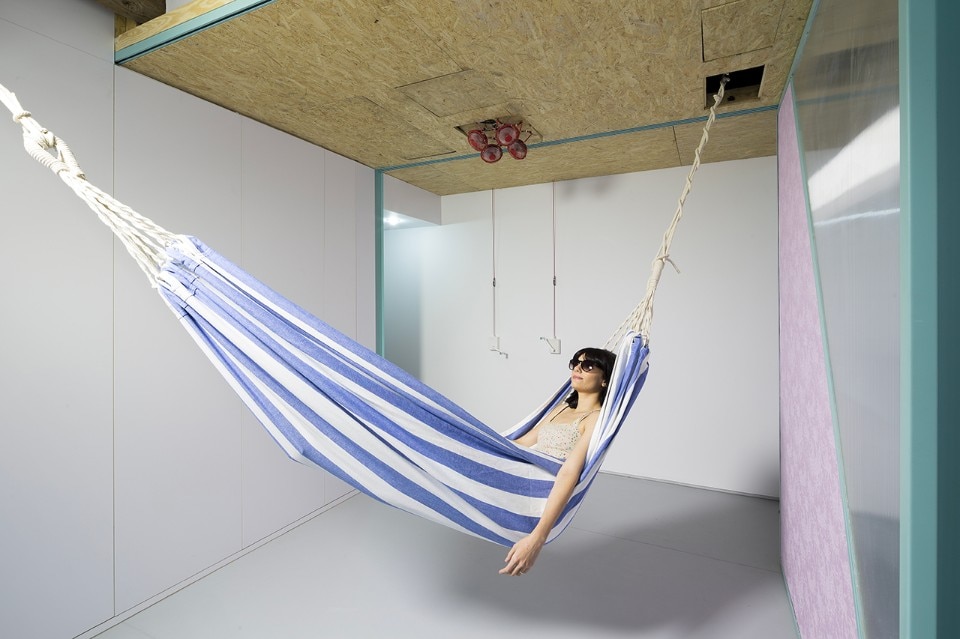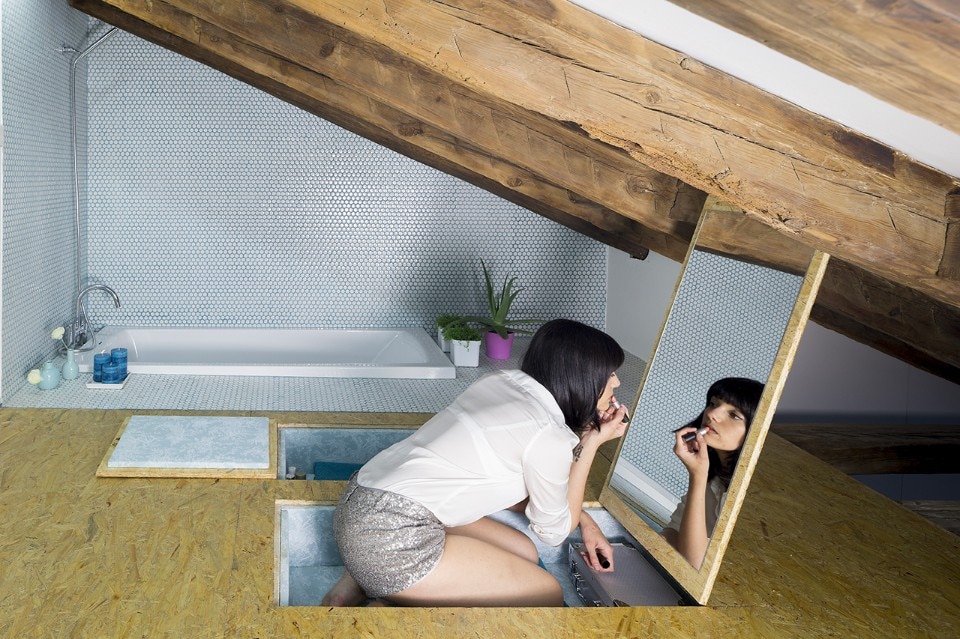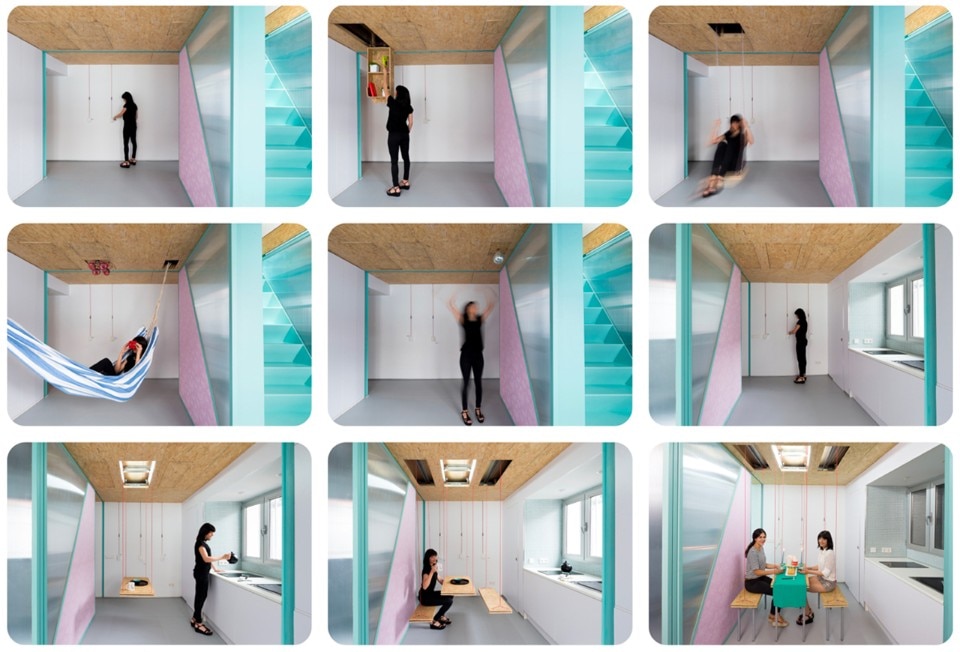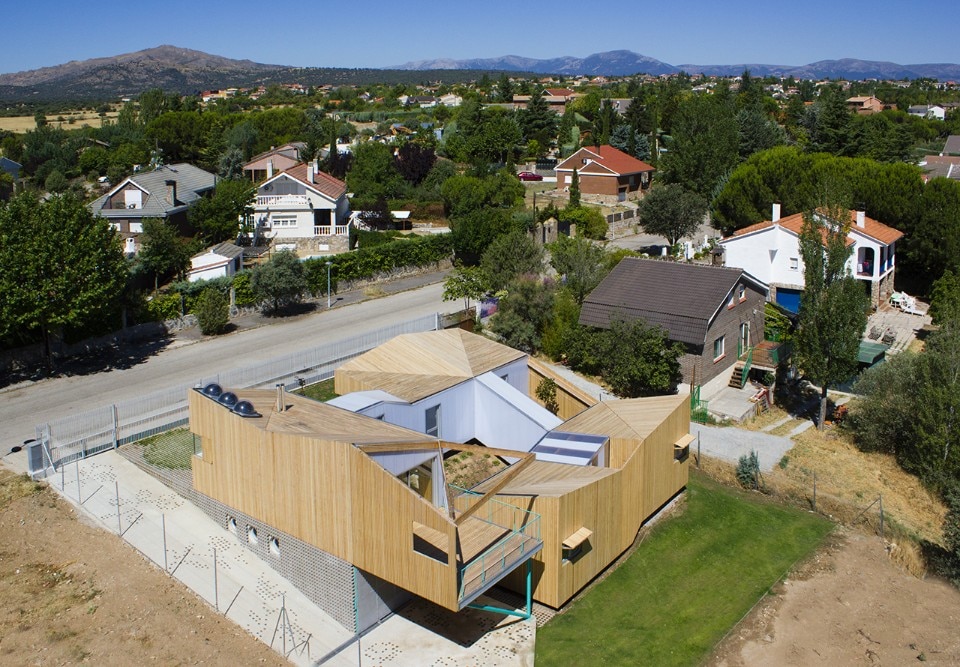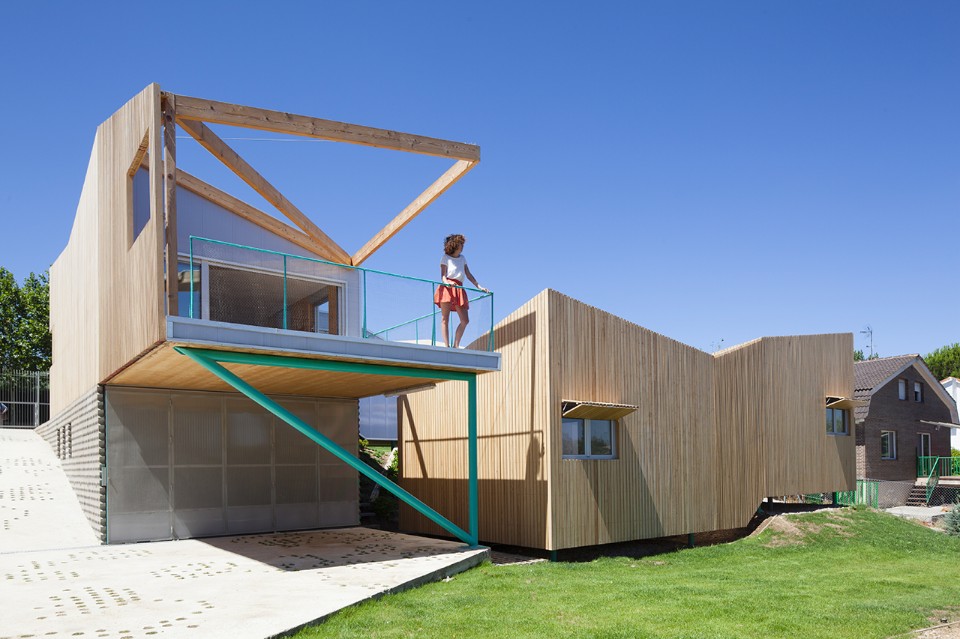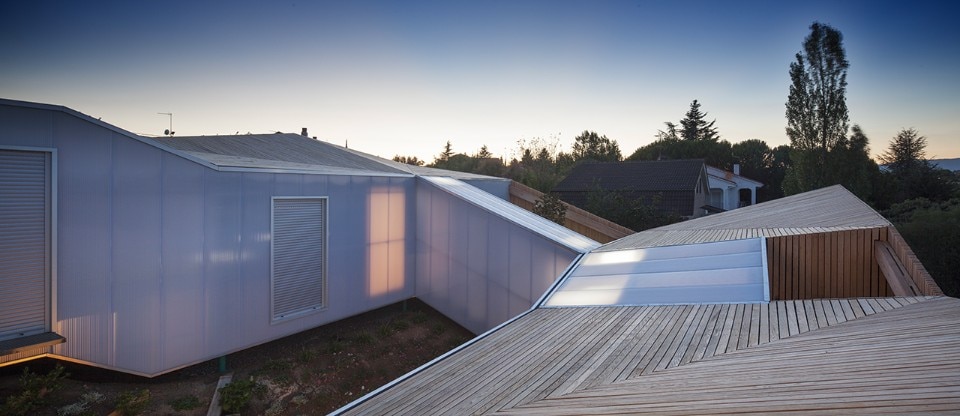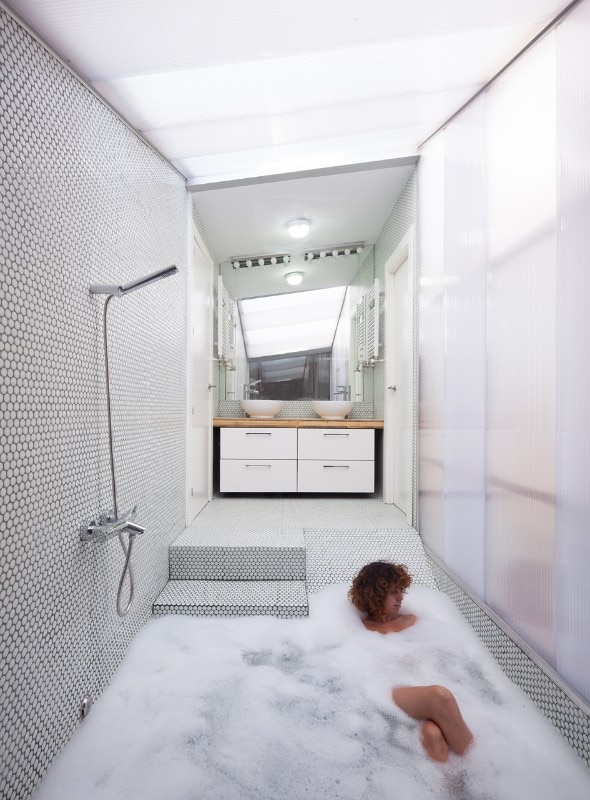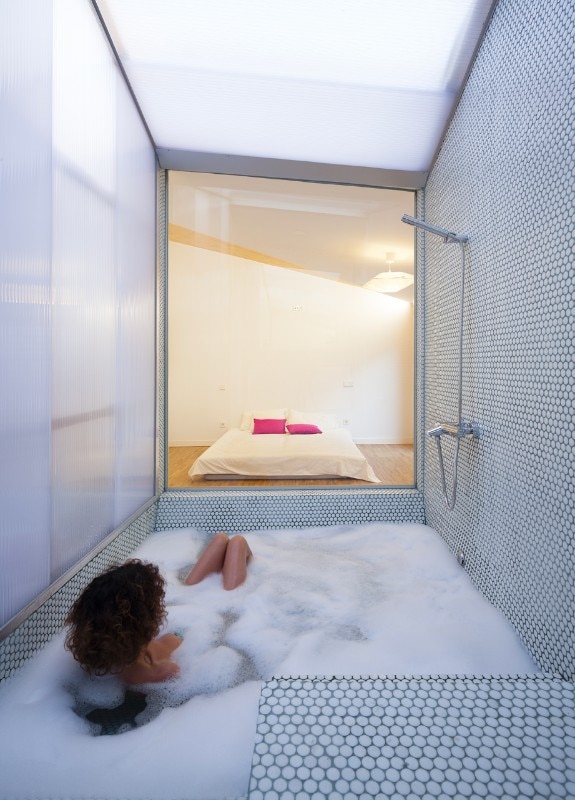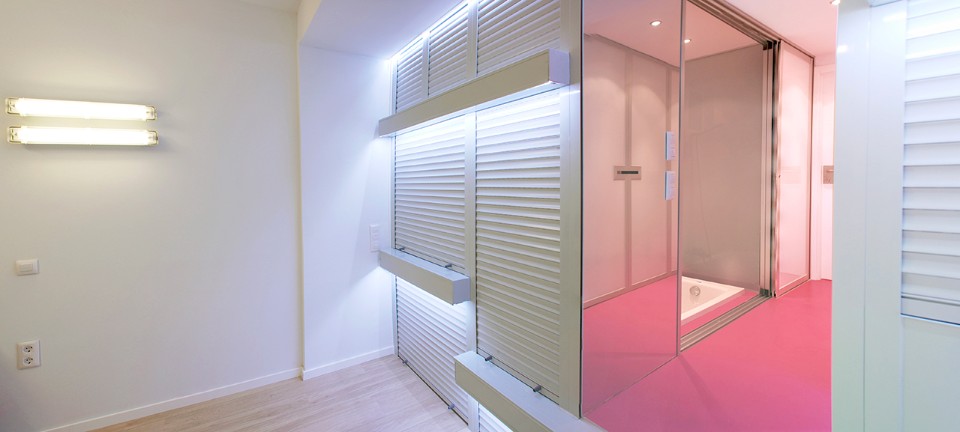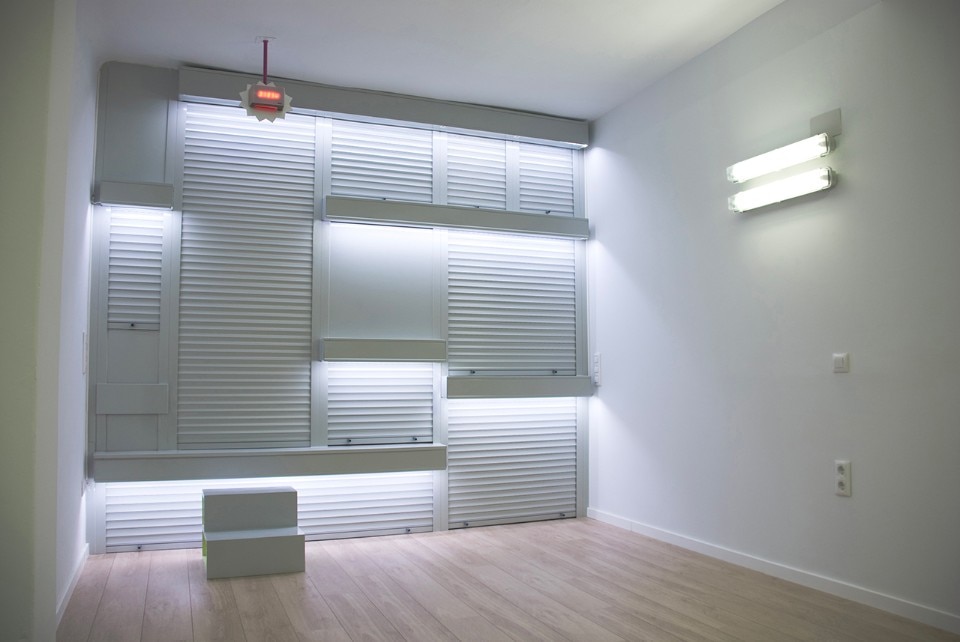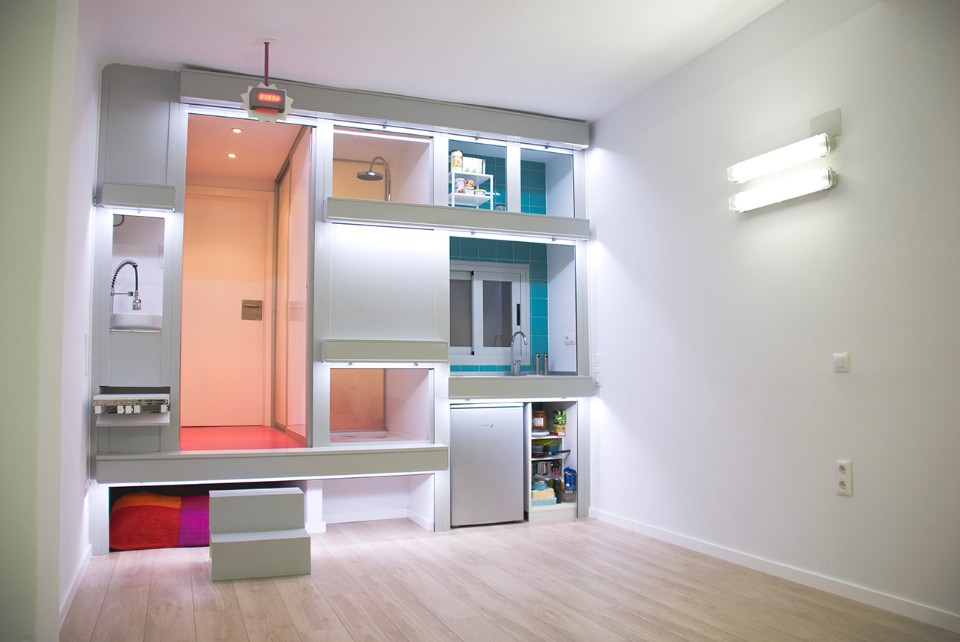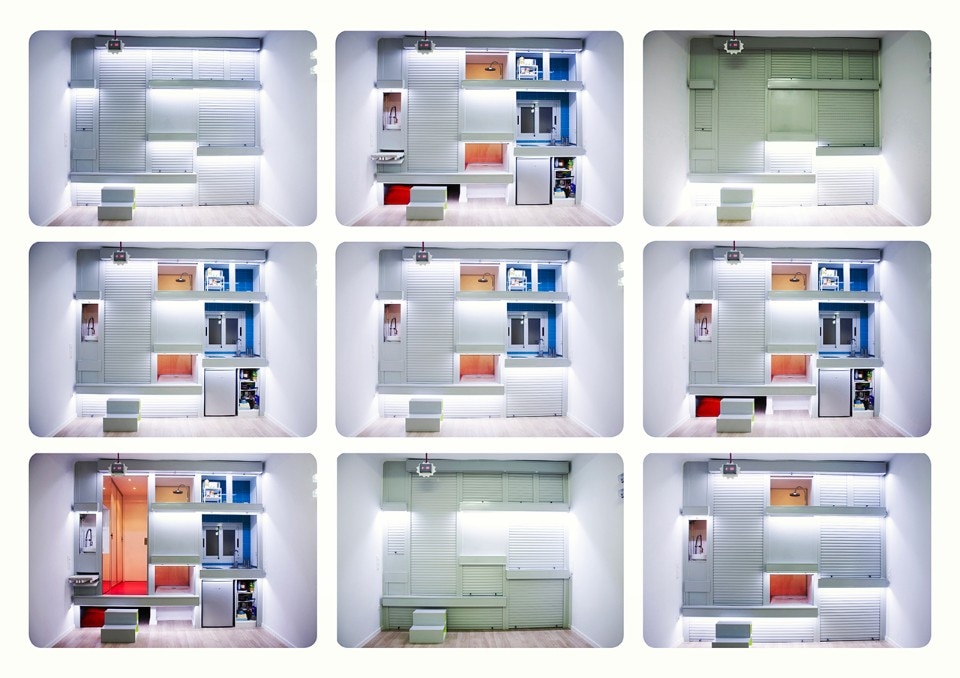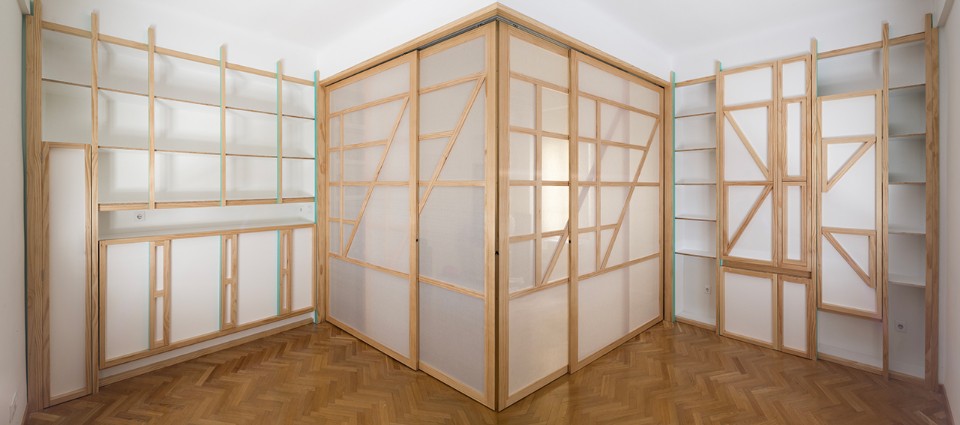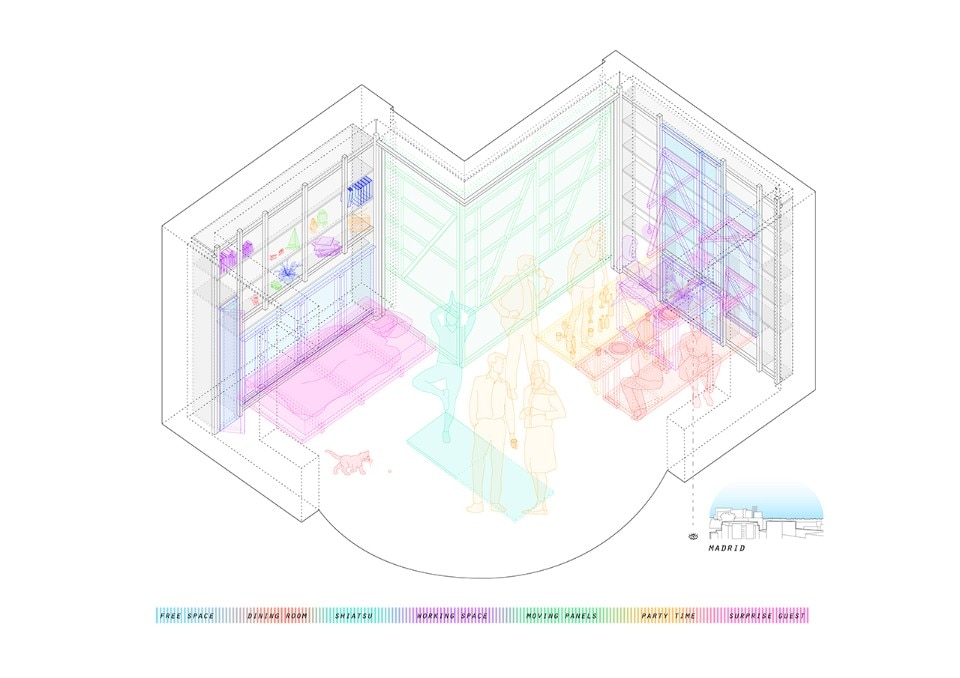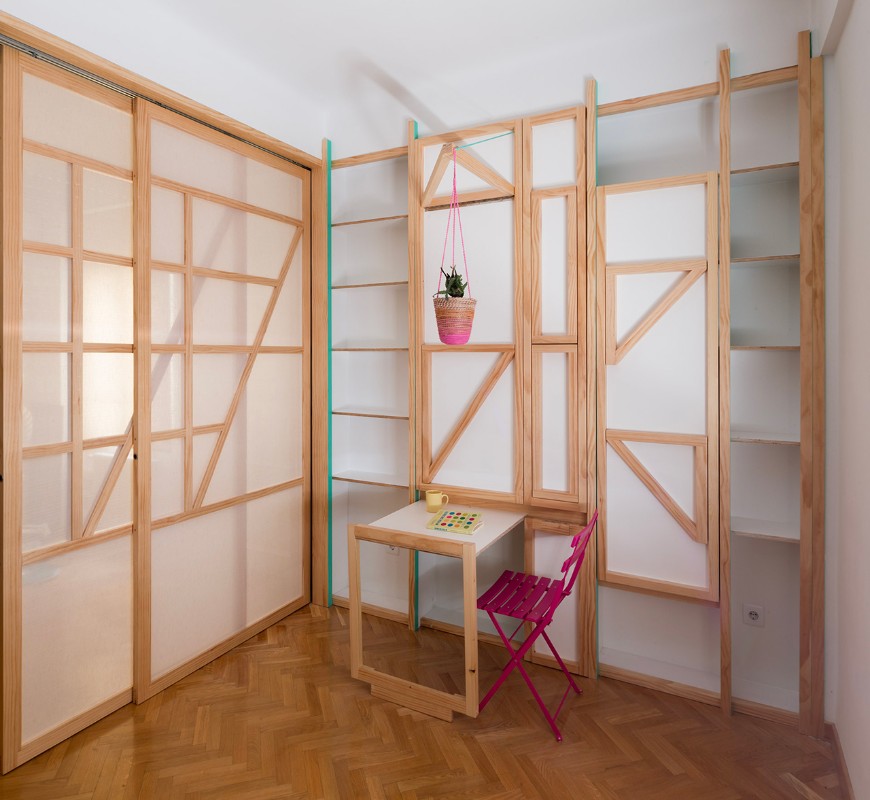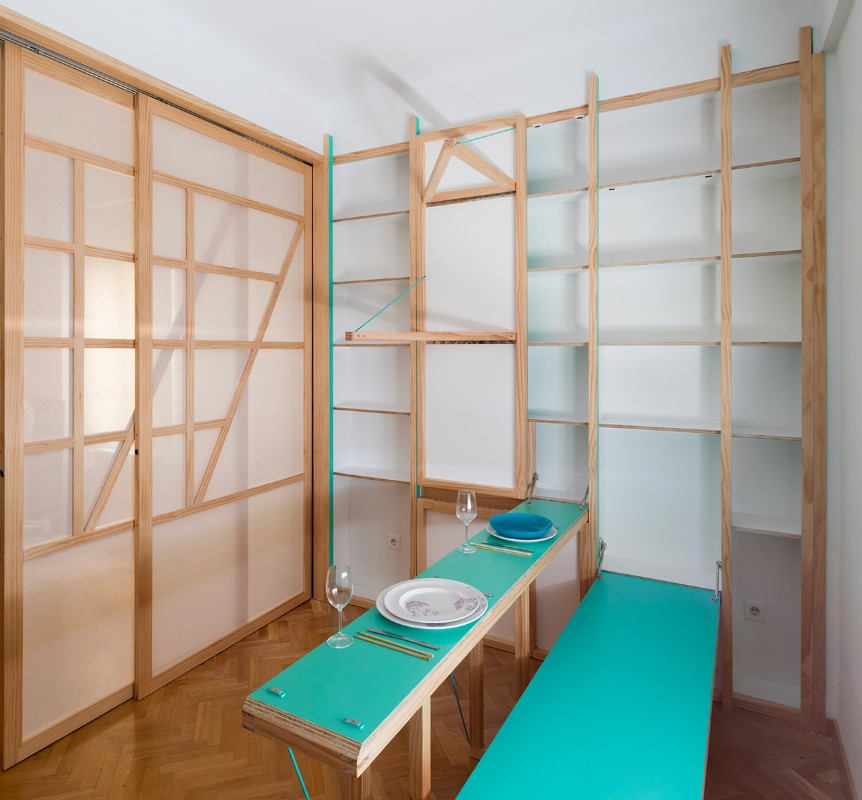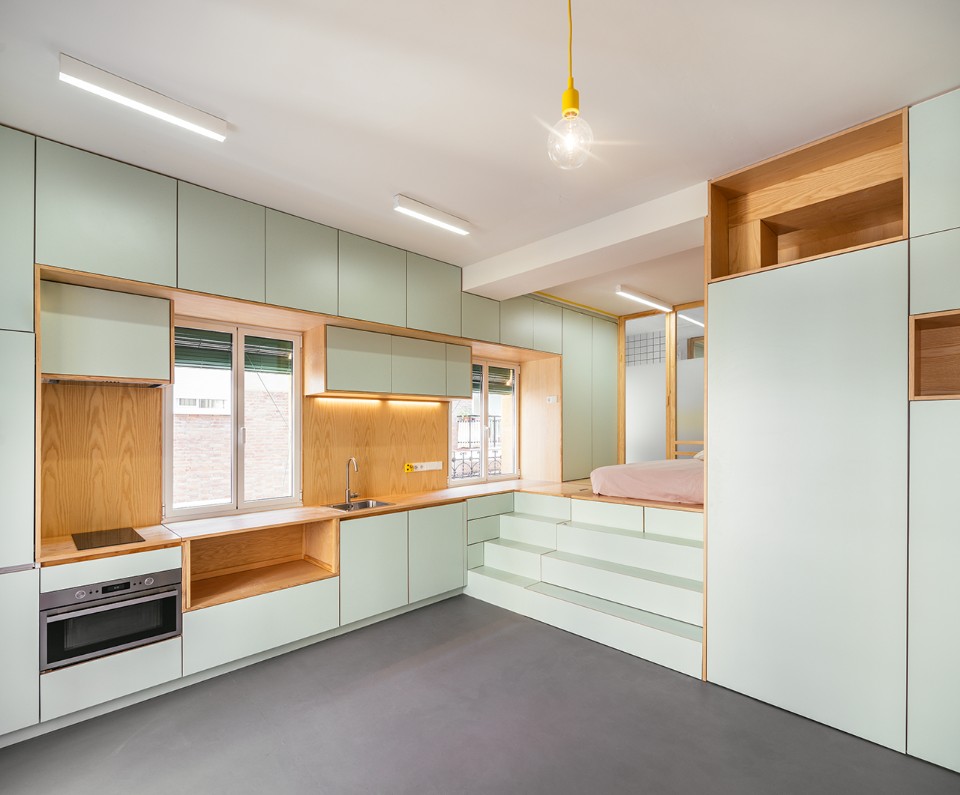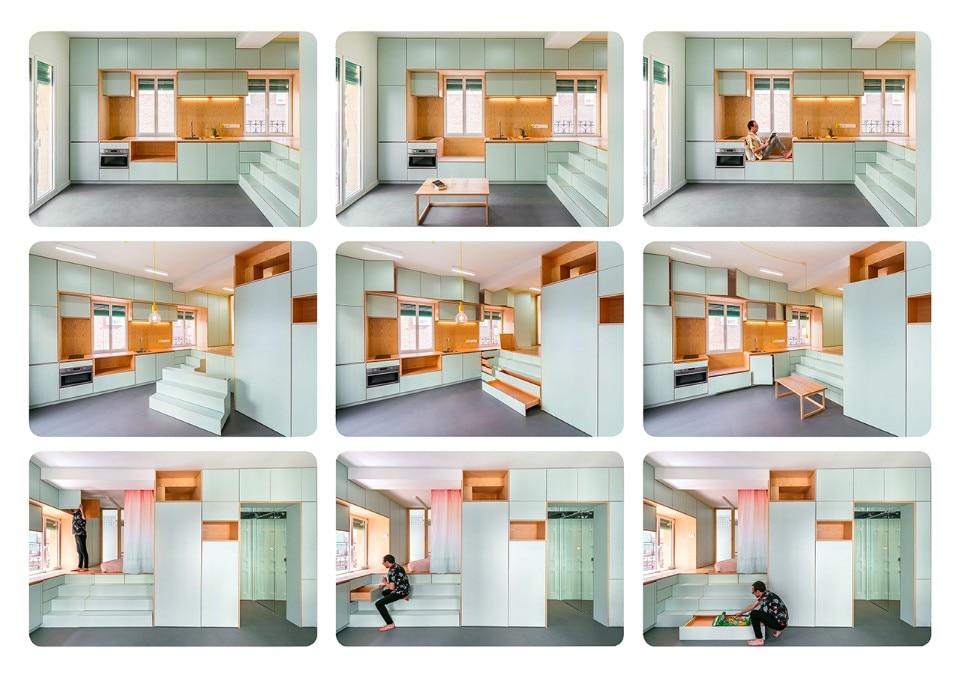In many of your apartment renovations you prefer flexibility rather than fixed designed spaces. Why?
The domestic environment is part of a network of spaces that condition our subjectivities. Transformable houses allow experimentation with ourselves, dressing up and fictionalising our own life, trying and testing life scripts, playing (in both its meanings: gaming and performing) with identities. It is interesting to design domestic spaces with a reserve of potency adaptable to other ways of life, other users, life contingencies, etc.
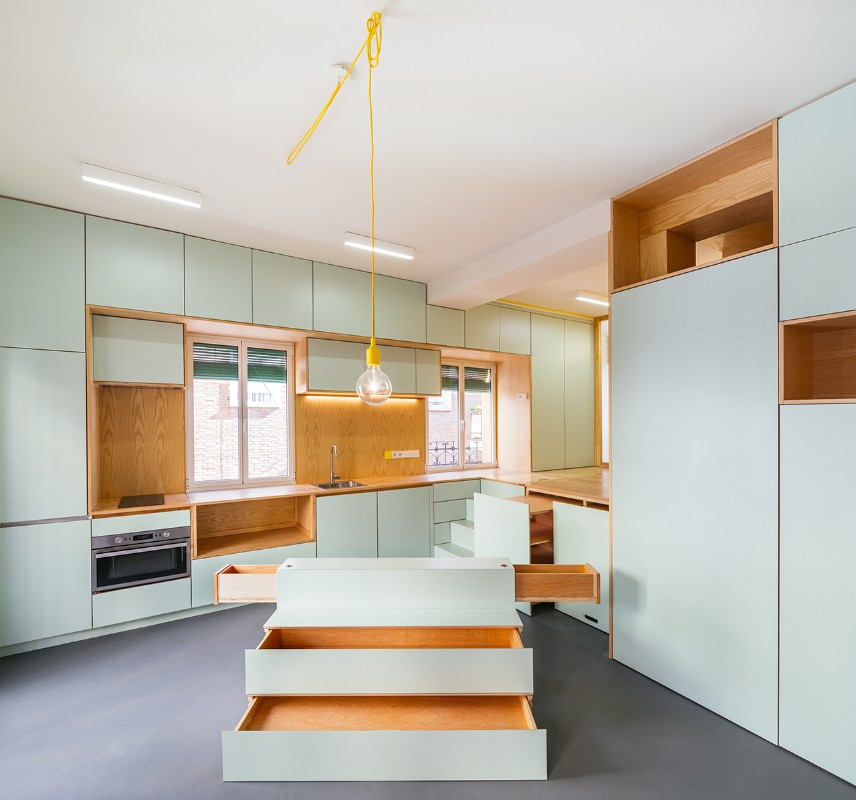
 View gallery
View gallery
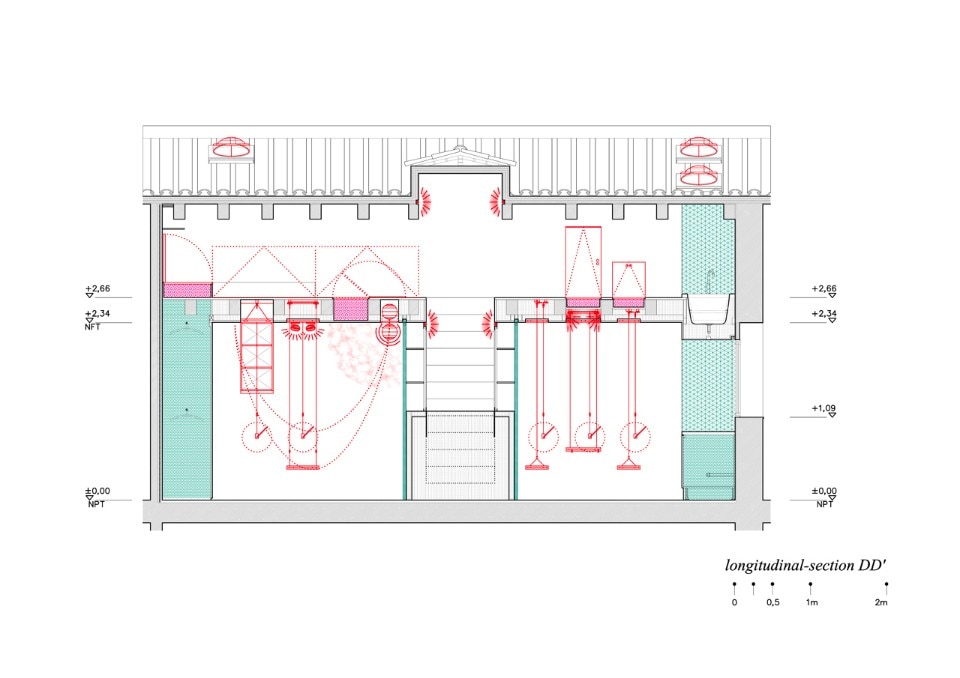
\\Elii\produccion\PUBLICACIONES\067_DIDOMESTIC\PLANOS CAD\PLANOS DEF PARA PUBLICACIONES Model (1)
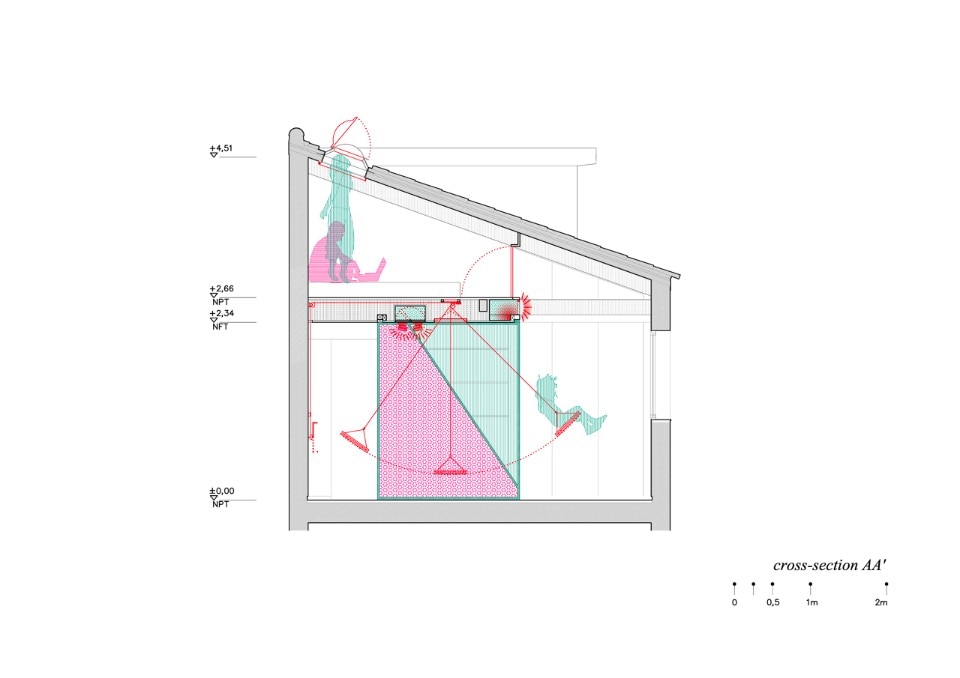
\\Elii\produccion\PUBLICACIONES\067_DIDOMESTIC\PLANOS CAD\PLANOS DEF PARA PUBLICACIONES Model (1)
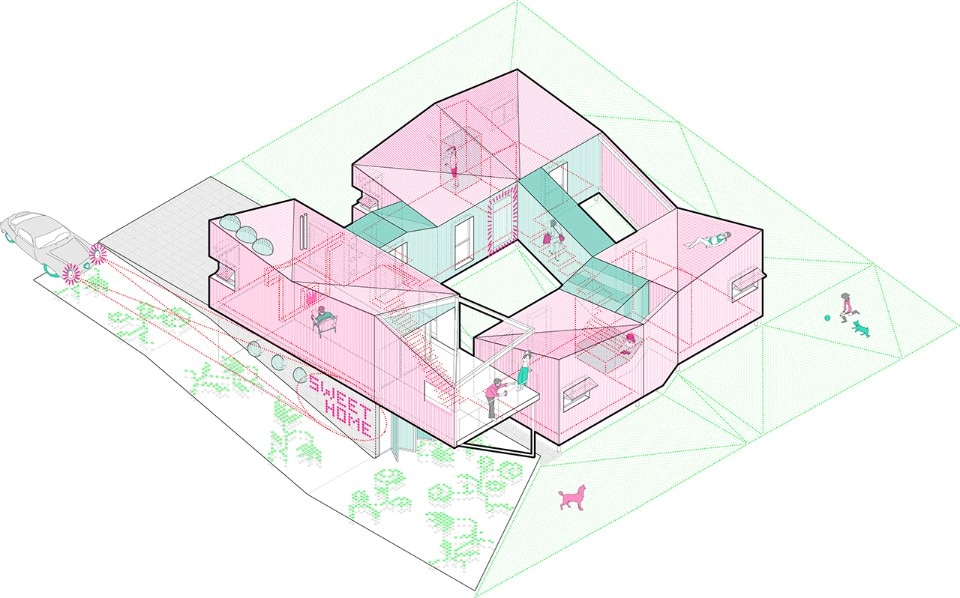
\\Elii\produccion\PUBLICACIONES\055_VIVIENDA IRH\AXONOMETRICAS PARA PUBLICACIONES\2013_02_22_AXO DEF Model (1)
Would you explain your idea of the house as a theatre?
Our everyday life is a sort of soap opera. We like the idea of understanding our homes as spaces where day-to-day fictions can be performed, where dwellers become both the audience and the actors. It is a kind of transformable stage equipped to intensify the performing experience of the users’ bodies, to question their social roles, to rehearse their shared imageries, to test their subjectivity and to explore the potentiality of the ordinary.
Such a peculiar and flexible domestic space – thinking for instance to your project Didomestic – suggests an equally peculiar and flexible user. Is it really like that?
Didomestic is the refurbishment of a loft in downtown Madrid for a young girl, who describes herself as a fan of heavy metal music and Hello Kitty and who wanted to start a new life away from the family nest. This project hinges on a dual strategy: on the one hand, a simple distribution optimises the functionality of this small space with a mansard roof; on the other hand, walls, ceilings and floors are fitted with a series of devices that allow multiple domestic configurations. Sliding panels, hatches, secret spaces, fold-down mechanisms, furniture that hangs from the ceiling… allow dwellers to deploy different domestic settings.
How much your projects are the result of client's wishes, desires or even fears?
Let’s say 99%. Our clients’ ordinary matters are the real matters of the works. Ordinary lives are always surprising and very rich. We try to understand the particularity of every situation and then design the best architecture strategy for each case. As Michel de Certeau stated: “everyday life invents itself”.
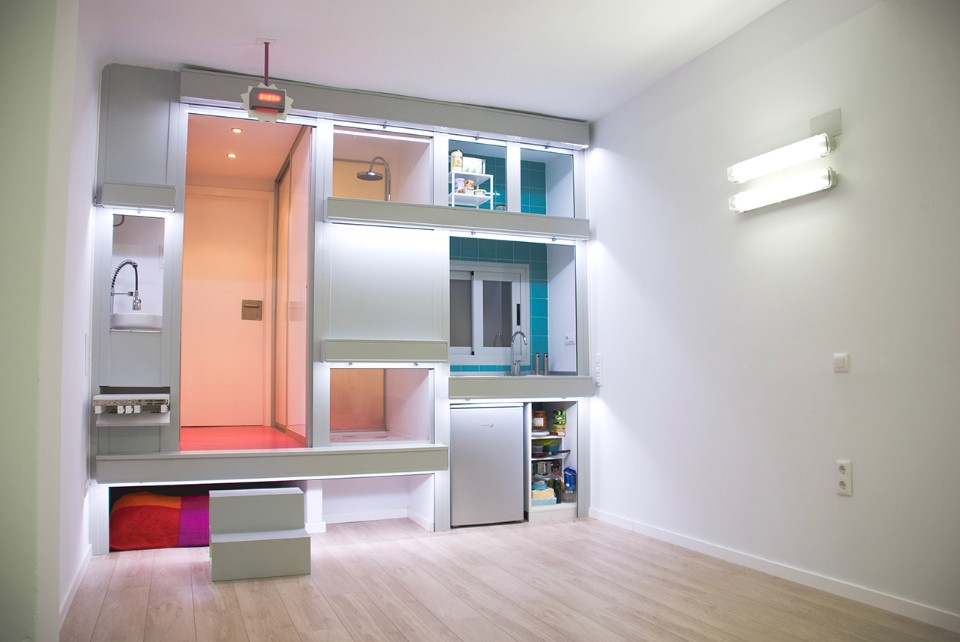
You often work on public spaces. In your opinion is there any connection, practical or symbolical, between public and domestic space?
Traditional narratives tend to state that politics take place in public spaces. But domestic spaces and actions are sites of everyday life (micro)politics. A good example can be found in the monitoring domestic technologies, like smart energy meters, like the ones included in our project Insider. These technologies make energy visible and controllable. They are capable of interacting with the unconscious levels of individual behaviour to create a new sense of awareness about energy consumption practices, which can eventually result in more sustainable consumption habits. But these devices also have the capacity to unfold domestic spaces and actions as possible sites of politics.
Technological tools open up the possibility of blurring the distinction between public and private spaces or between political actions and everyday practices. They achieve this by rendering abstract forces into something visible, evident and quantifiable, and thus into something that can be acted upon and by showing how seemingly mundane quotidian actions can be integrated into other scales of action beyond the home. Technology offers the possibility of seeing the house not as a self-contained and private space, but as a space that is embedded within a larger network of energy consumption and pollution. We could develop a similar argument based on gender studies: the domestic space is a battlefield of the politics of everyday life.
This interview is part of “Superdomestico. A Dialogue on the New Obsession with Domesticity”, a research project by the casatibuonsante architects’ office and a cycle of lectures promoted and hosted by Ostello Bello, in Milan. Its aim is to analyse the domestic environment and its changes in relation to mechanisms linked to the contemporary economic system.



